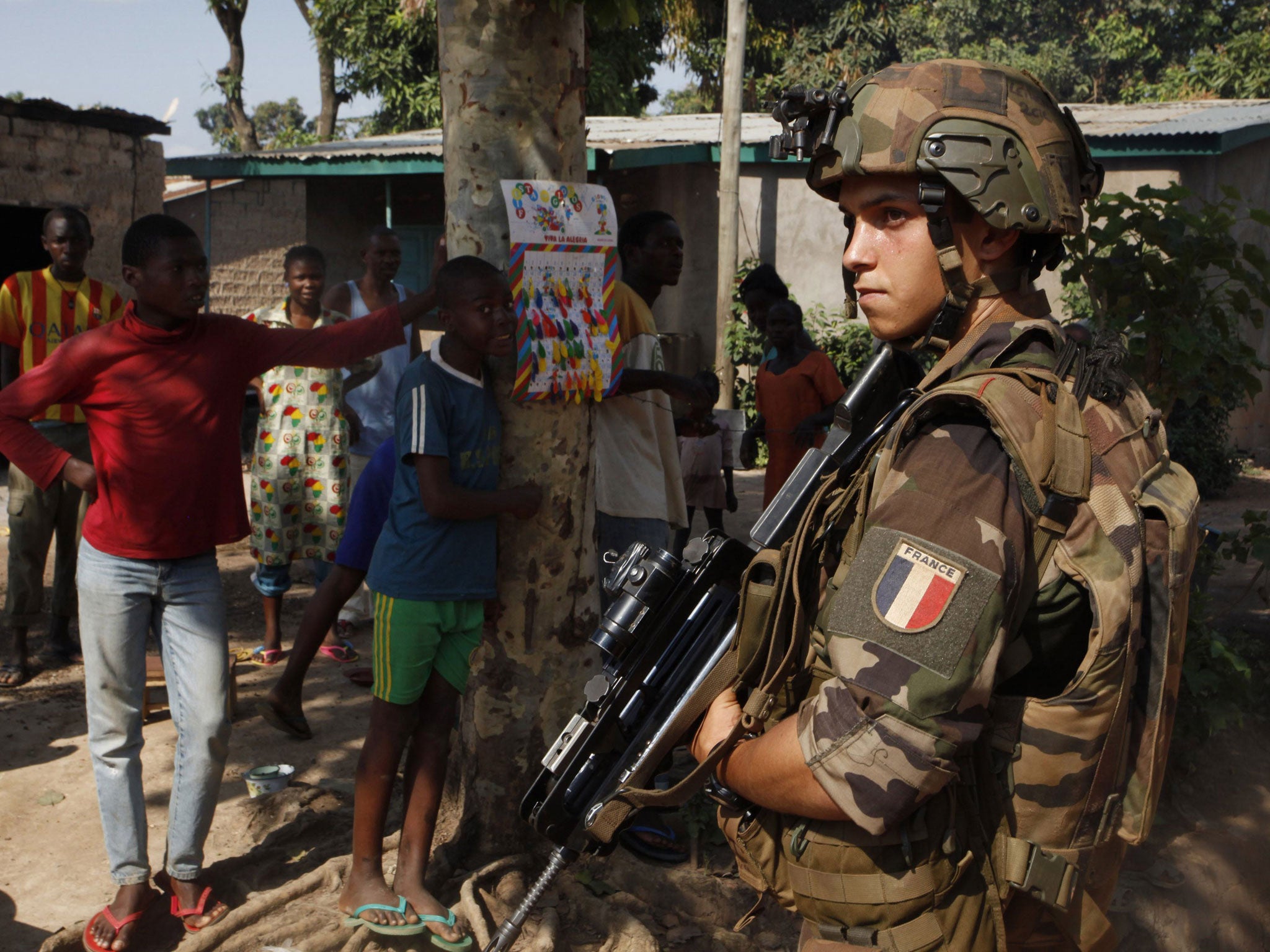After days of sectarian violence, French troops bring calm to the Central African Republic
Fighting between rival militias and random attacks on civilians has killed at least 400 people in three days

French soldiers, tanks and warplanes brought relative calm on Sunday to the streets of Bangui, capital of the Central African Republic (CAR), after fighting between rival militias and random attacks on civilians killed at least 400 people in three days.
The mostly Christian residents of the city left their homes and hiding places to applaud street patrols by a 1,600-strong French force which arrived on Saturday to halt the spree of killings and to forestall a possible Christian-Muslim civil war.
The French Foreign Minister, Laurent Fabius, said on Sunday the troops would move to disarm the Muslim bands of Seleka fighters who have been accused of pillaging and slaughtering since last Thursday. Other French soldiers will deploy into the countryside to try to prevent further revenge attacks on Muslim villagers by Christian vigilante groups.
The nominal president of the CAR, Michel Djotodia, declared three days of national mourning yesterday and expressed his “profound gratitude” for the French intervention. Mr Djotodia, the country’s first Muslim President, was installed by the Seleka rebels in March but then rapidly lost control of the country and his own forces.
The Seleka fighters, including many foreign mercenaries, are accused of a string of unprovoked massacres of Christians in rural areas in recent weeks. The spree of killing in Bangui is reported to have begun with a revenge attacks on Muslims by the Christian so-called “anti-machete” militia in the middle of last week.
Amid warnings by the US that the former French colony could plunge into a full-scale, genocidal civil war, the United Nations Security Council approved an armed French intervention last Thursday. French soldiers, backed by tanks, helicopters and warplanes, deployed throughout the capital on Saturday, calming but not completely ending the violence.
“If they can get into the neighbourhoods, we might start seeing a reduction in these crimes,” said Amy Martin, a representative of the UN Officer for the Coordination of Humanitarian Affairs. “The level of atrocities and the lack of humanity, the senseless killing, defies imagination.”
The political and civil strictures of the country collapsed months ago. Half of the population of 4.8 million is said to be in need of humanitarian aid, and more than a million people face severe food shortages or famine.
The Central African Republic, known a French colony until 1960, is one the poorest countries in the world. There have long been religious and economic tensions between the minority Muslims, who are traditionally livestock farmers, and the wealthier and more populous Christians, who are mostly crop-growers. There has never before, however, been sustained violence between the two groups. In March, President François Bozizé was overthrown by a coalition of two Muslim groups that formed Seleka. His supporters called for continuing popular resistance against the rebels whom they accused of being mostly foreign jihadists and “terrorists”.
The French President François Hollande, often accused of indecision at home, has now authorised two French military interventions in Africa in one year. Officials in Paris say there is little comparison between the “humanitarian” intervention in the CAR and the largely successful campaign against Islamist rebels who threatened to overrun Mali in January.
Mr Hollande made it plain at the weekend that his forces were not there to prop up President Djotodia. “I don’t want to point fingers,” he said. “But we cannot keep in place a President who was not able to do anything, or even worse, let things happen.”
A 2,500-strong force from the African Union is already in the CAR but has been largely inactive so far. Mr Hollande said this force would be strengthened and would support the French peacekeeping operation. “In what I believe will be a very short period we will be able to stop all exactions and massacres,” he said.
Join our commenting forum
Join thought-provoking conversations, follow other Independent readers and see their replies
Comments